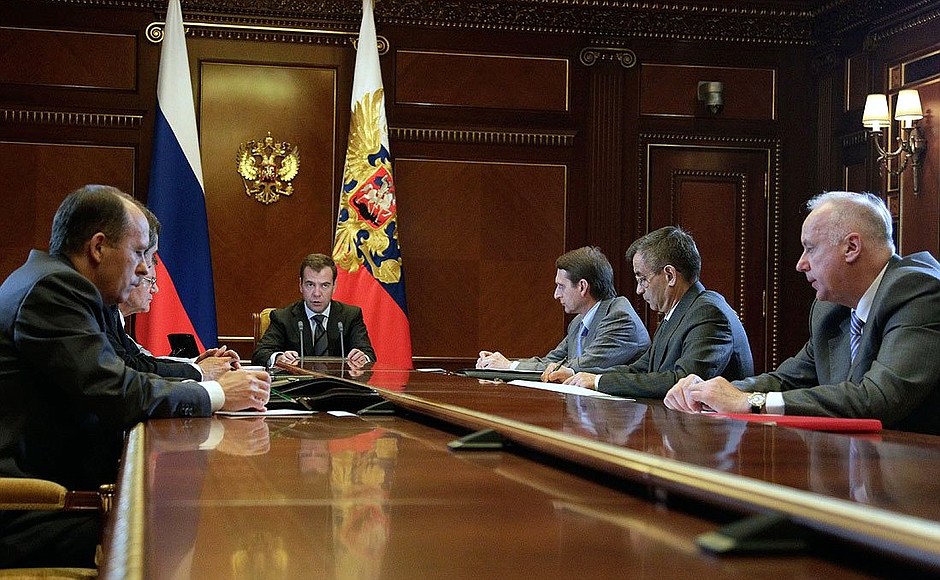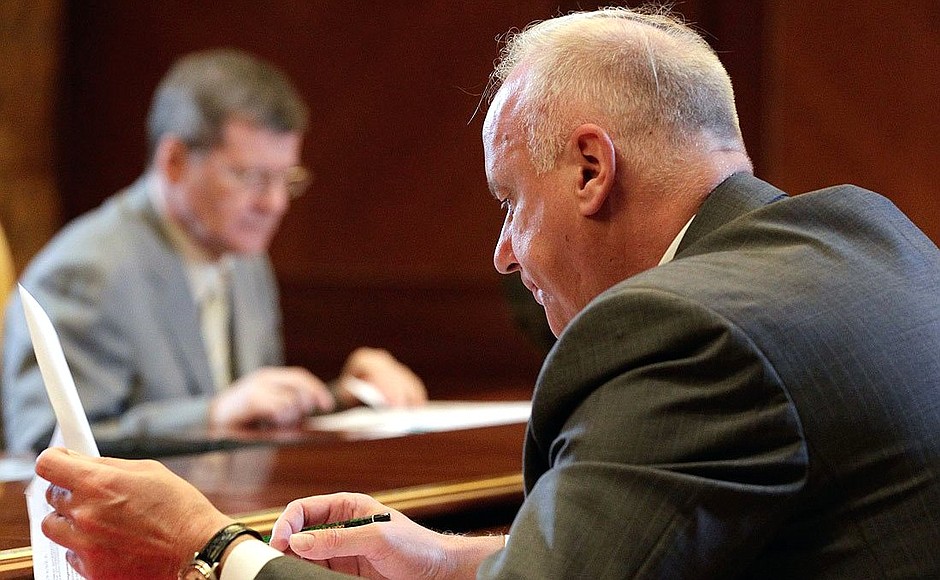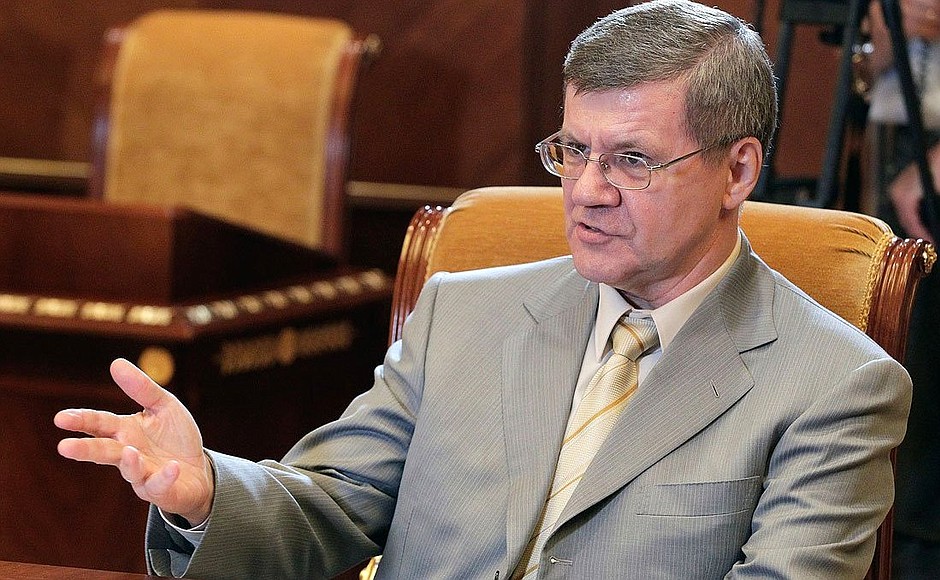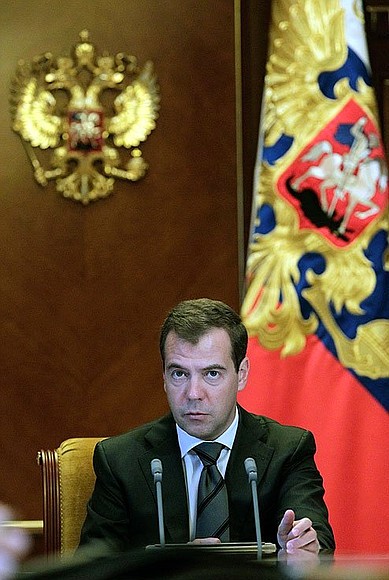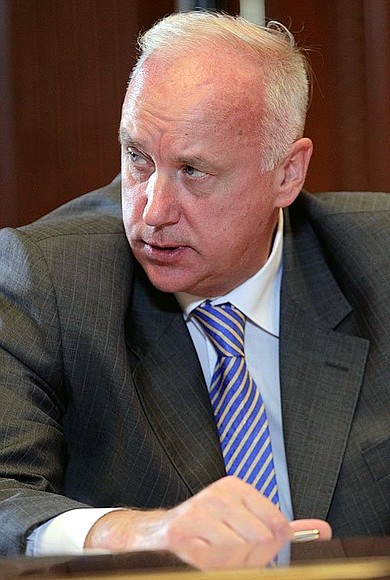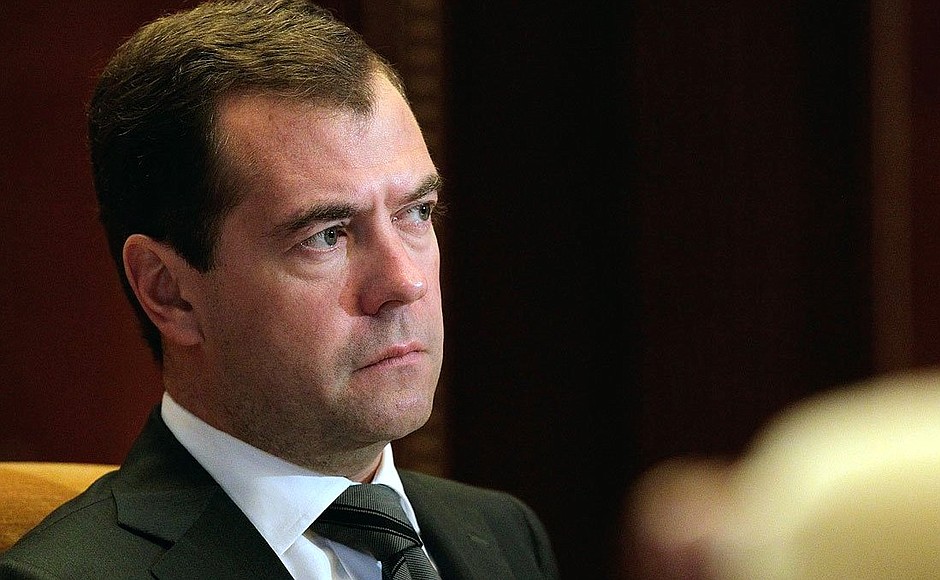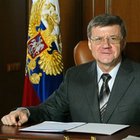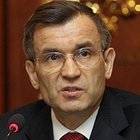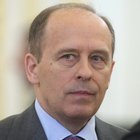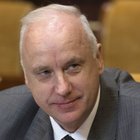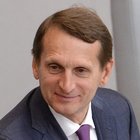Participants in the meeting included Prosecutor General Yury Chaika, Interior Minister Rashid Nurgaliyev, Federal Security Service Director Alexander Bortnikov, Investigative Committee Chairman Alexander Bastrykin, Chief of Staff of the Presidential Executive Office Sergei Naryshkin and First Deputy Chief of Staff of the Presidential Executive Office Vladislav Surkov.
* * *
President of Russia Dmitry Medvedev: Colleagues, today we have a number of issues on our agenda. Before we begin to discuss them, I would like to say a few words on an important topic that pertains to completing one of the phases of reforming Russia’s Interior Ministry. Namely, a special certification process for police officers, to which about a million people were subject, will be completed on August 1.
Let me remind you that 183,000 individuals were fired or removed from their corresponding positions at the Interior Ministry at the first stage of the reform. During the certification period, 48,000 officers were declined full employment and will soon be dismissed. In total, 226,900 people will be relieved of their duties and their positions will be cancelled altogether. In other words, this represents a 22 percent decrease in Interior Ministry personnel, compared to the number of employees before the reform. This is a major reduction and a very significant change in personnel, regardless of what is said or written about it.
See also
I hope that as a result of all our steps, the state of affairs at the Ministry will change and improve, and the Ministry’s performance will become more effective.
The Commission for Special Certification [of the Russian Federation Law Enforcement Agencies’ Personnel Applying for Senior Positions] is also completing its work. It was set under my order on March 1, 2011 to certify senior personnel and it thus engaged in one of the most important aspects of the Ministry’s reform. Let me remind you that participants in the Commission’s activities included subdivisions of the Presidential Executive Office and officials of the Ministry of the Interior, Federal Security Service, Prosecutor General’s Office, Investigative Committee, Federal Financial Monitoring Service, and representatives of civil society, which hopefully helped promote an increase in the transparency of this work and the neutrality of the decisions made.
In reviewing candidates, the certification process examined both the professional and personal qualities of police officers and meticulously verified data concerning their incomes and properties, as well as analysed their professional performance results. Besides, the commission took into account information from various sources, including the media, on possible evidence on unlawful acts by police senior and subordinate officers, which was probably done for the first time ever. Coordination Councils under regional governors which were also set under my Executive Order were involved with appointments of senior police officials, too.
In addition, we had some significant rotation of top officers at our internal affairs agencies, which is another method for minimising various forms of corruption-related mechanisms and schemes that can develop in the regions through long-term work side by side of various officers. One in three senior staff members was appointed to an adequate position in a different region of the country.
Overall, the Commission accumulated some good experience. I think that it can be further used by all law enforcement agencies. Thus, I have made the decision to continue the Commission’s operation on a permanent basis and to make it a permanent commission on personnel policy, and I have just signed an Executive Order to this effect.
The requirements to the officers and the adequate personnel decisions will certainly evolve, but they must not be weakened. I would like to draw your attention to the fact that this is also directly linked to improving anti-corruption legislation in our country, the process involving all our security services. I would like you all to participate in this process, to discuss all issues directly and openly with the Presidential Executive Office, and if necessary, to report to me personally.
”A special certification process for police officers will be completed on August 1. I hope that as a result of all our steps, the state of affairs at the Ministry will improve, and the Ministry’s performance will become more effective.“
There is another topic I would like to discuss today, pertaining to the recent Bulgaria cruise ship tragedy. The sunken ship was recovered from the bottom of the river following my decision. This was necessary for both moral and legal reasons, although operations of this kind are naturally expensive and require some concerted effort.
Now, a very important part of the inquiry has begun, related to gathering expert opinions, inspecting the site of the tragedy, identifying the guilty ones, and determining the causes and conditions that contributed to this misdeed. All of this is required to determine what happened, and to identify and punish the culprits. I will note again that this should be done with regard to a broad range of individuals involved in this accident, including the organisers of this mess, and not just the scapegoats, front-men, and other random people who are somehow related to this affair.
Thus, I would like the Chairman of the Investigative Committee to report on the progress in this investigation. Let’s begin with that, and then we will discuss a range of other issues in a restricted format.
Please, Mr Bastrykin, go ahead.
Investigative Committee chairman Alexander Bastrykin: Mr President,
We completed the first phase of the investigation, which involved identifying the victims. The investigative group was increased to 70 officers in order to accelerate the inquiry process. And as you noted, we are now taking important investigative actions – a detailed examination of the vessel, together with specialists who must establish the direct cause for why the ship sank. For now, according to initial assessments, it appears that the cause was the ship’s unfit technical conditions.
Today, based on your instructions to go beyond blaming ‘scapegoats’, we identified a range of governmental and nongovernmental organisations that are responsible for river navigation security, the state of the ship, and the safety of the passengers. In particular, we are currently conducting an investigation into the river register and the state sea and river supervision department; we are working at the shipyard that renovated the vessel, and at the vessel-owner that rented out the ship.
By now, we have generally identified the executives of these companies who, along with the CEO of the tourist agency and river registry representative who signed the [certification] documents, can and apparently should be held liable for their misconduct.
And as you rightly noted, we are now preparing to conduct a sophisticated technico-legal examination that will be performed by the top specialists in river and marine vessel navigation, to obtain scientific and technical opinion. We will thus get properly-based findings on the causes of this tragedy. This will allow us to prosecute everyone responsible, in the broadest sense of the word, and identify all the causes and conditions that led to this tragedy. My report is finished.
Dmitry Medvedev: Please report to me regularly on the progress in this investigation.
<…>
